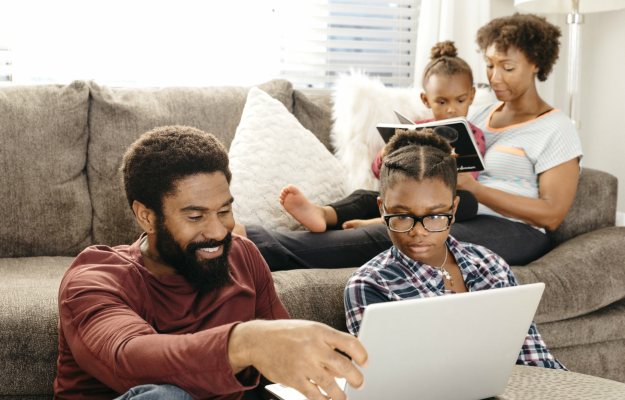
The Department of Basic Education (DBE) has provided helpful tips for parents who have had to step into the teacher role since the Covid-19 pandemic has forced schools to close across SA, and the globe.
Many schools have provided activities for parents and learners to work together so they won't fall behind on the academic year, but parents don't always have the time or skills to assist their kids.
The useful and practical tips and advice are helpful to parents who are struggling to set up a school environment at home.
Find more schooling tips and support on Parent24
Create a study routine
The department states that routines are important as they give children a sense of security and help with the development of self- discipline patterns.
A routine allows children to feel safer, and develop a sense of mastery in a secure environment.
As this sense of mastery is strengthened, it then persuades a child to tackle larger challenges. Helping children feel safe and ready to take on new challenges is one of parent's responsibilities.
The establishment a family routine with regular mealtimes, bedtimes, homework time, and outdoor play and exercise time is important.
Sharing time with family in a structured routine gives a child a sense of meaning, belonging and security.
It is the responsibility of the parent to make the home a suitable environment for learning, the DBE tips say, and this includes making a space for the child to study.
Additionally, set time and space to do homework.
- OPINION: Our children are living history now, let’s give them a break
- Google launches tools to help educators and students stay connected
- WATCH: Local teachers share hilarious clips of bungled lockdown classes
Provide homework
It will greatly benefit your child if you assist them with homework, as this is one way of encouraging the child to study and work independently; but children need supervision from their parents.
Follow up on academic responsibilities
Parents must make sure that their children do their homework, and must also monitor and check if the homework is completed - despite not being experts in the subject area.
Teach your child self-regulating strategies
To encourage learners to take ownership and responsibility for their learning, parents can use the following approaches which is used by teachers in top-performing schools, says the DBE:
1. Teaching learners self-regulatory skills which including time management, handling distractions and controlling negative emotions.
2. Parents are urged to encourage reliance and responsibility, and to encourage their child to use phrases like, "I can do it."
Asking children to share their work with their peers on digital platforms as a means to encourage responsibility.
- Online schooling? Find handy local resources here
- Trying to homeschool because of coronavirus? Here are 5 tips to help your child learn
- Online learning proves crucial during Covid-19 lockdown as Vodacom e-school registrations spike dramatically
Cooperative learning
What happens when your child is not motivated; or seem like they don't care no matter what you do or say?
Cooperative learning might be the solution, says the DBE.
This is defined as instructional use of small groups so that learners work together to maximize their own and each other's learning.
Parents should encourage children to reach out digitally to their classmates or friends and create online learning groups.
Setting up of cooperative groups
Nature of groupings: Most top performing schools prefer heterogeneous groups than homogeneous groups because they strongly believe that different learners have more to learn from each other says the DBE.
Size of groupings: Cooperative groups are quite effective in teams of four to five members.
Ground rules are key to guide group members: Following six simple rules that guide cooperative group members like, helping each other, encouraging each other, giving and accepting feedback.
Wellbeing
Nutrition
Children are constantly growing and evolving, and they need vitamins and minerals to fuel them daily. The DBE encourages parents to monitor and control what their children eat.
Parents should encouraged nutritional balance with regular exercise such like jogging, cycling and playing sports.
Psychosocial
Psychosocial well-being is when children have the competencies and capacities to deal with life's demands and manage relationships well, enabling them to understand their environment, engage with it, make choices, and have hope for the future.
The purpose of providing psychosocial support to children is to optimise their social, spiritual and emotional well-being to enable them to cope with daily demands.
Source: Department of Basic Education
Chat back:
Share your story with Parent24. Anonymous contributions are welcome.
WhatsApp: Send messages and voicenotes to 066 010 0325
Email: Share your story with us via email at chatback @ parent24.com




 Publications
Publications
 Partners
Partners















